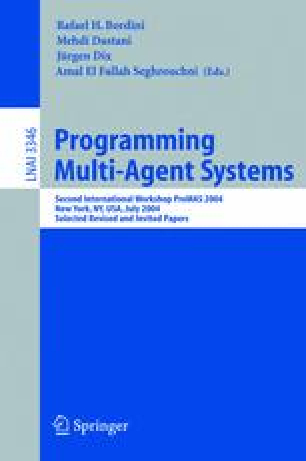
Programming Multi-Agent Systems (vol. # 3346)
Publication year: 2005
ISBN: 978-3-540-32260-3
Internet Resource: Please Login to download book
This paper is focussed on a principled way to combine the two dominant paradigms for building multiagent team plans, namely the “belief-desire-intention” (BDI) approach and distributed POMDPs. In this hybrid BDI-POMDP approach, BDI team plans are exploited to improve distributed POMDP tractability and distributed POMDP-based analysis improves BDI team plan performance. Concretely, we focus on role allocation, a fundamental problem in BDI teams – which agents to allocate to the different roles in the team. The hybrid BDI-POMDP approach provides three key contributions. First, unlike prior work in multiagent role allocation, we describe a role allocation technique that takes into account future uncertainties in the domain. The second contribution is a novel decomposition technique, which exploits the structure in the BDI team plans to significantly prune the search space of combinatorially many role allocations. Our third key contribution is a significantly faster policy evaluation algorithm suited for our BDI-POMDP hybrid approach. Finally, we also present experimental results from two domains: mission rehearsal simulation and RoboCupRescue disaster rescue simulation. In the RoboCupRescue domain, we show that the role allocation technique presented in this paper is capable of performing at human expert levels by comparing with the allocations chosen by humans in the actual RoboCupRescue simulation environment.
Subject: Computer Science, MAS programming, Unified Modeling Language (UML), agent architectures, agent systems implementation, agent technology, agent-oriented programming, agent-oriented programming languages, agent-oriented software engineering, mobile agents, multi-agent planning, multi-agent programming, multi-agent system, ontology